Persuasion
The Influence Of, And On, Epigenetics
We control no one but influence everyone.
Posted July 28, 2012

I have been writing about stress for several weeks. We all have it. Stress lives all around us, and sometimes eats its way inside us, resulting in a cascade of events that change who we are and how we next respond to that world. Sometimes people respond to stress through drugs and alcohol, innocently but unfortunately increasing the very stress they are trying to overcome. As they begin to convince themselves they are not strong enough to manage the world around them, their stress goes up, they may use more, and find themselves in a dangerous running wheel like a rodent in a cage.
And yet each has the ability to manage stress in our modern world.1 But I believe we have to do it together. When we help someone else manage their stress we create not only our own sense of value, but resilience in the person we help.
On a daily basis I am astonished by that resilience of the kids at CASTLE, my program for adolescents challenged by addiction. One remarkable story follows another. Some kids are ready for sobriety, others are not even contemplating that drugs are a problem in their lives.
One boy overdosed on heroin and needed Narcan to live.
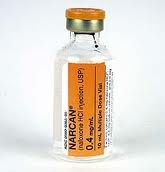
But in his current state of denial he has tried to convince himself he can still shoot dope, but just a little at a time.
Another kid was spending all the money she earned on weed, thought about it all day, went stoned to school, and was stoned at home. She was lying to her parents, and had a stash of Visine
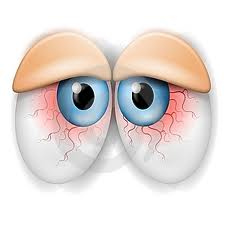
next to her stash of marijuana. One day she woke up and realized how much her drug use had isolated her from her parents. She just wanted them to trust her again, so she had told them she needed help.
Yet another spoke about how she would get “free” DXM from the store, finally acknowledging that “free” meant stolen.
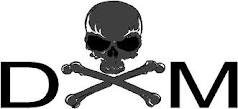
Another talked about his sadness that he had never felt loved enough, and that his parents loved his twin but crippled brother even more. His own drug and alcohol use were an escape but also a desperate attempt to be crippled by drugs: maybe then he would be more loved.
Just the other day a 17-year-old girl, hooked on heroin, was determined to leave the program stating she felt the pillows were too hard. She was angry with me for not just agreeing to let her leave. “Why are you doing this to me?” she pleaded? “I don’t want to use. I’m not going to use.” I told her I was sure that in her heart of hearts she did not want to use heroin again. But addictions do not happen in the heart, they happen in the brain.
We spoke, got her father on the speaker phone, and she cried. He had promised to pick her up and was going to keep her word, but wanted her to really think about what she was doing.
She cried. He cried. Together they began to recognize how we all had a common enemy in heroin. Together we began to change the world around her, and as that happened, her inner world changed, and she decided to stay longer in the program and get more help to stay sober. I heard later that day the other kids had cheered, each going up to her and hugging her, praising her for her decision. She had helped to save a life that day: her own.
So how does a person stop using? With the help of all of us. Like stolen jewelry, it is the person on drugs who has been taken from us. The path to their sobriety is through us, and a deeper understanding of the brain that craves drugs and alcohol at that moment more than the companionship of another human.
Most people have heard about genetics, that we inherit traits from our parents: eye color, skin tone, both external and internal manifestations of the combination of genes from our mom and dad. Sometimes these genes mutate, sometimes they rearrange. It was in these mechanisms that inheritance and evolution was meant to occur.
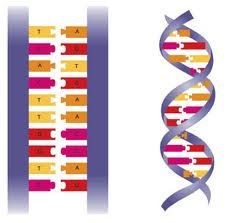
If you got a good set of genes you were more likely to survive, and pass those genes on to the next generation. The famous double helix structure first described by Watson and Crick in 1953 was a remarkable article of only 952 words.2
But there is a new understanding exploding in the literature: epigenetics. This idea suggests that the environment itself can alter the genes, tagging them to turn on or off.
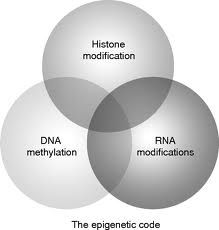
And these genetic switches can be heritable, passed on to the next generation. If the world we live in can impact the world we pass on to our children, what will be passed on to the children of the kid who overdosed, the kid who was lying to her parents, the kid who stole DXM, or the kid who was unconsciously trying to cripple himself? What was the influence of that young woman’s Dad crying with her, letting her know he would not let her down and pick her up, but hoping she would stay, get help, and come home to stay?
I talk about epigenetics to the CASTLE kids. Not trying to scare them but to empower them with knowledge. The reality is that no one will ever be scared out of using drugs or alcohol. If the brain is going to choose between fear and pleasure, it will choose pleasure every time. But there is pleasure in power. Knowledge is power. The power to make choices. The knowledge to understand addiction. The recognition that we control no one and influence everyone, so in a very real way we are the epigenetic forces on each other. The remarkable power and responsibility that comes with knowing, truly knowing, that we DO matter. That we DO have a voice, an influence, a chance to change the world everyday.
The same applies to stress. We can create a world where we continue to compete, or find opportunities for cooperation. We can fight, flee, freeze or find friendships.
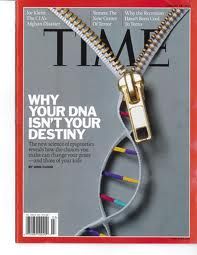
We can attempt to put stress on some one else to get rid of our own, or take the burden off another and both be more productive. What we choose to do will have an impact on some of the smallest parts of ur body: our DNA. When those kids at CASTLE praised the girl who stayed, she smiled. She smiled, a little safer, a little more valuable, a little more confident that her stress was being shared. She smiled, and so did I.
We are remarkably interconnected, and because of this connection we control no one but influence everyone. What kind of influence do you want to be? How do you want to influence our world of epigenetics? I know what I want to do.
1) Manage Your Stress. Overcoming Stress in the Modern World. Joseph Shrand, MD with Leigh Devine, MS. St. Martin's Press. July 2012
2) Molecular structure of nucleic acids; a structure for deoxyribose nucleic acid. Watson, JD, Crick FH. Nature. 1953 Apr 25;171(4356):737-8.




